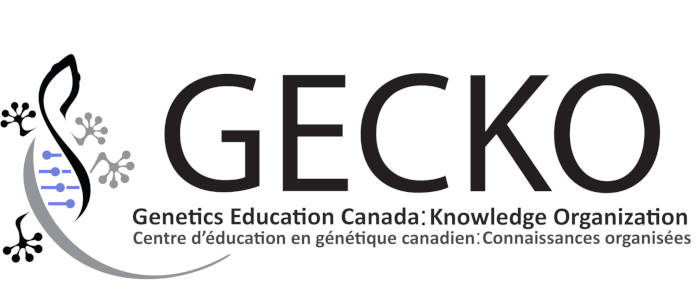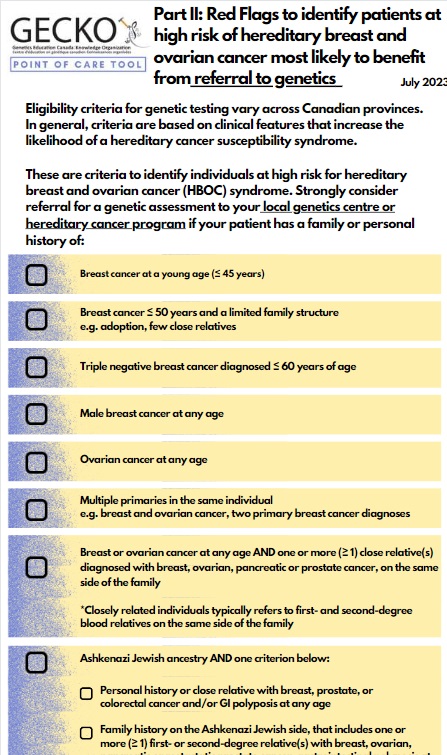Breast cancer is relatively common in the general population (12% lifetime risk) and the majority of cases occur sporadically. About 5-10% of breast cancer and about 15% of ovarian cancer is due to an inherited gene change. Pathogenic variants in the BRCA1 or BRCA2 genes are the most common cause of hereditary breast and ovarian cancer (HBOC) and BRCA1 and BRCA2 pathogenic carriers have a significant increased lifetime risk for breast and ovarian cancer in addition to other cancers. Risk-reducing surgeries and, for some women, chemoprevention, can reduce mortality from breast and ovarian cancers in both BRCA1 and BRCA2 carriers. Due to the overlap in clinical presentation and the advancement of genomic technology, genetic testing generally involves a large gene panel where several (>7) genes associated with breast/ovarian and other cancers are analysed.
While not all individuals will qualify for genetic testing, some will qualify for modified cancer screening and a more appropriate relative (the youngest, affected individual) may be offered genetic testing.
Individuals with a personal and/or family history that are at high risk (generally >5%) to carry a pathogenic variant in a hereditary breast/ovarian cancer gene can be offered referral to genetics services for a discussion of the benefits, harms and limitations of genetic testing, while women whose family histories suggest a low risk of a hereditary predisposition can be reassured and offered screening following provincial guidelines. (For more information see the comprehensive GECKO deep dive or the concise GECKO on the run)
Point of care tool to assess risk of Hereditary Breast, Ovarian Cancer Syndrome. (Reviewed July 2025)
This point of care tool has two parts. Part I of this tool is used to predict which individuals should be referred for genetic counselling due to increased risk for a predisposition to breast or ovarian cancer including but not limited to hereditary breast and ovarian cancer (HBOC) syndrome caused by pathogenic variants in BRCA1 and BRCA2 genes. Part II of this tool contatins a checklist of criteria to identify individuals at high risk for a predisposition to breast and ovarian cancer and who to strongly consider referral for a genetic assessment. While not all individuals will qualify for genetic testing, some will qualify for modified cancer screening and a more appropriate relative (the youngest, affected individual) may be offered genetic testing.
Links to your provincial breast screening program can be found here.
-
Disclaimer:
· GECKO is an independent not-for-profit program that does not accept support from commercial or non-academic entities.
· GECKO aims to aid the practicing non-genetics clinician by providing informed resources regarding genetic/genomic conditions, services and technologies that have been developed in a rigorous and evidence-based manner with periodic updating. The content on the GECKO site is for educational purposes only. No resource should be used as a substitute for clinical judgement. GECKO assumes no responsibility or liability resulting from the use of information contained herein.
· All clinicians using this site are encouraged to consult local genetics clinics, medical geneticists, or specialists for clarification of questions that arise relating to specific patient problems.
· All patients should seek the advice of their own physician or other qualified clinician regarding any medical questions or conditions.
· External links are selected and reviewed at the time a page is published. However, GECKO is not responsible for the content of external websites. The inclusion of a link to an external website from GECKO should not be understood to be an endorsement of that website or the site’s owners (or their products/services).
· We strive to provide accurate, timely, unbiased, and up-to-date information on this site, and make every attempt to ensure the integrity of the site. However, it is possible that the information contained here may contain inaccuracies or errors for which neither GECKO nor its funding agencies assume responsibility.



